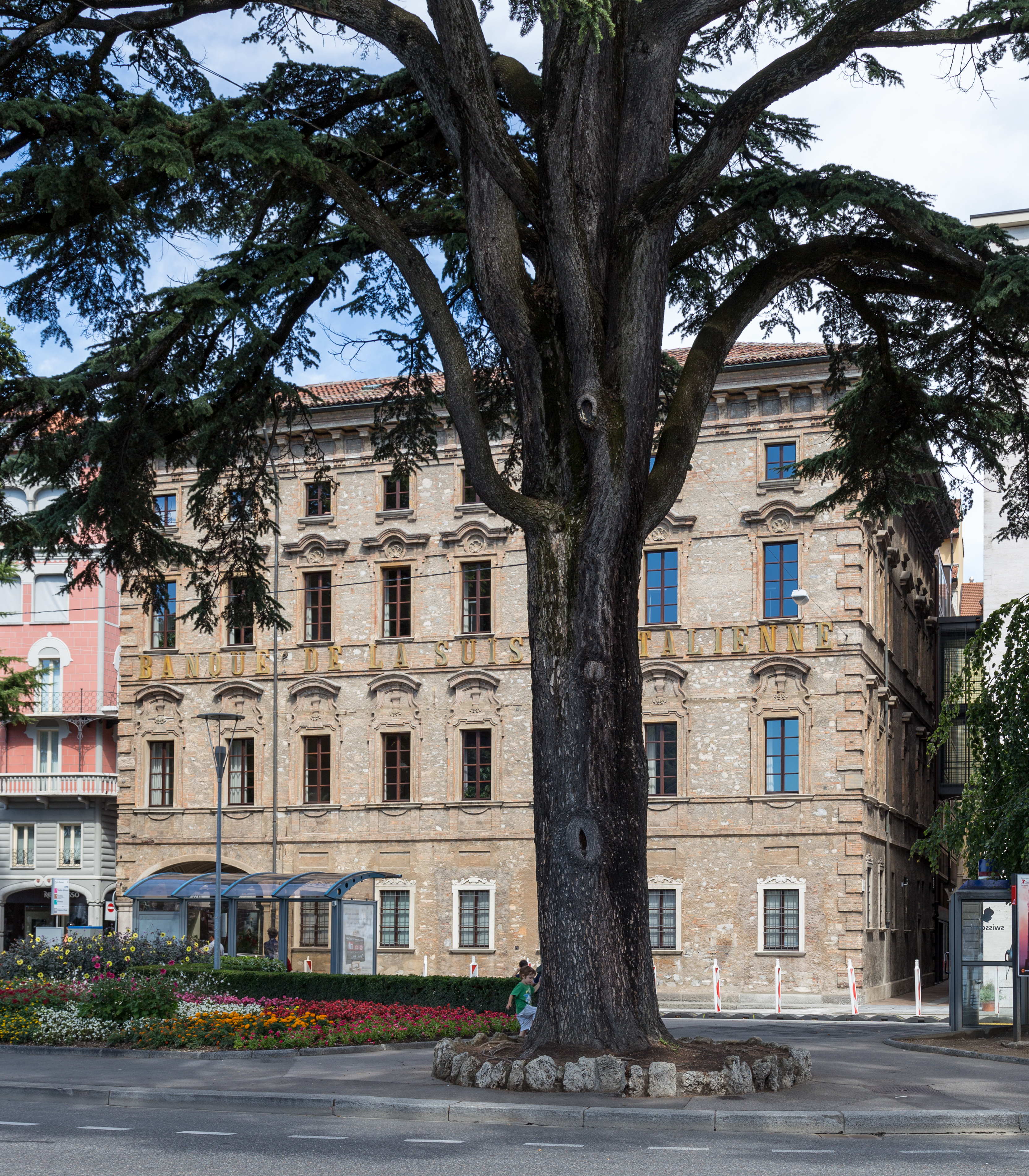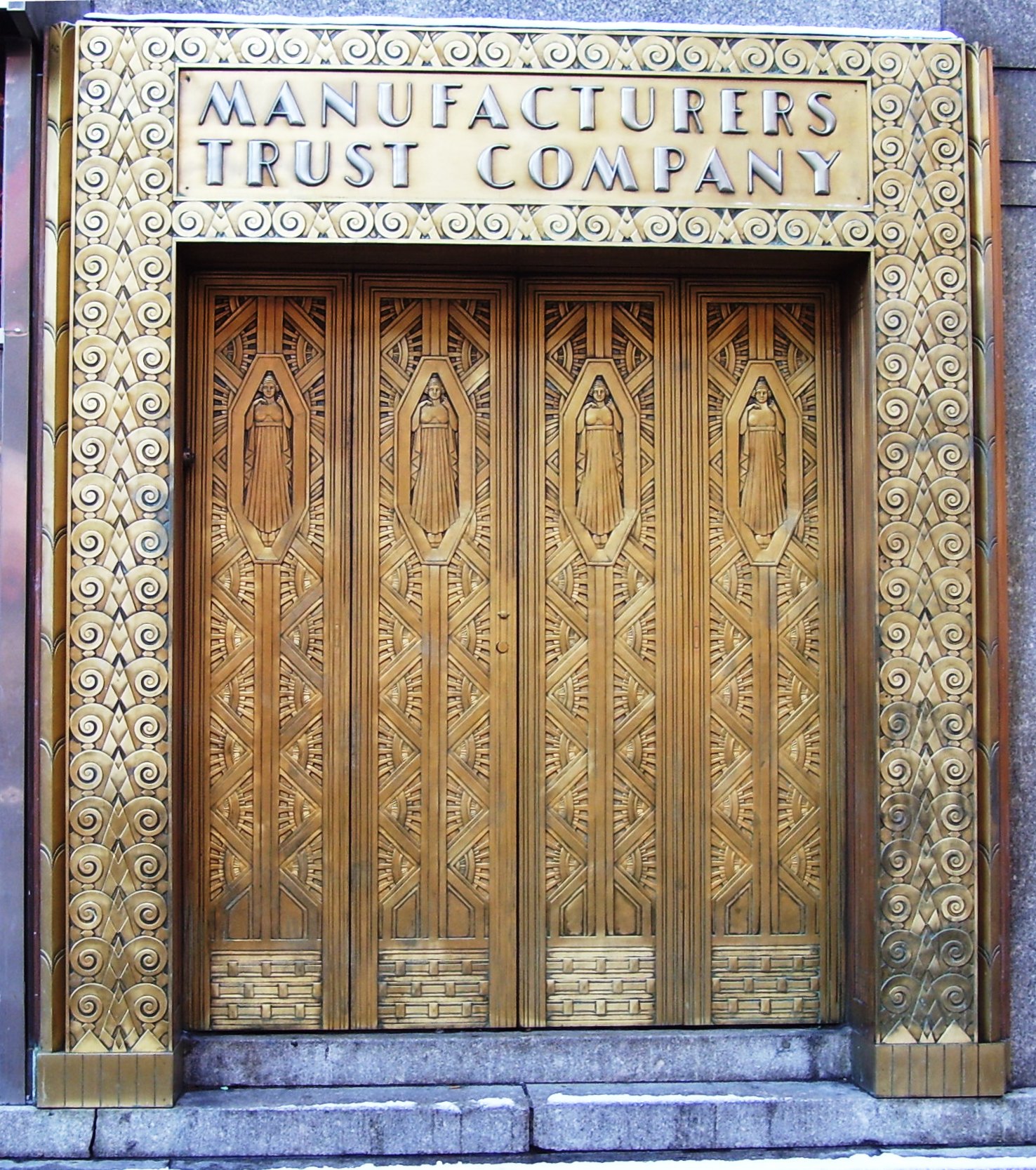|
Banca Commerciale Italiana
Banca Commerciale Italiana (COMIT), founded in 1894, was once one of the largest banks in Italy. In 1999 it merged with a banking group consisting of Cassa di Risparmio delle Provincie Lombarde (aka Cariplo; est. 1823) and Banco Ambroveneto, which had merged in 1998. The bank group changed the name to Intesa-BCI, which BCI temporary became a sub-holding company. On 1 January 2003, the group's name changed to Banca Intesa. In 2006 Banca Intesa merged with Sanpaolo IMI, based in Turin, Italy, to form Intesa Sanpaolo. History BCI's predecessor was the '' Società Generale di Credito Mobiliare'', founded in 1862. This institution became successful as a lender to the iron and steel industry. However, the Italian banking crisis of 1893–1894, led to Credito Mobiliare's failure. On 10 October 1894 Credito Mobiliare was re-established as a private joint-stock bank under the name Banca Commerciale Italiana with capital from several German and Austrian banks, including S. Bleichröder, ... [...More Info...] [...Related Items...] OR: [Wikipedia] [Google] [Baidu] |
Cariplo
Cassa di Risparmio delle Provincie Lombarde known as Cariplo SpA, was an Italian bank. On 2 January 1998 the bank merged with Banco Ambrosiano Veneto to form Banca Intesa. The company became a short-lived sub-holding company in late 1990s, which was completely absorbed circa 2000. History The bank was formed on 12 June 1823 by the count Giovanni Pietro Porro, in Kingdom of Lombardy–Venetia, decades before the unification of Italy. Situated in industrialized Northern Italy, the Lombard firm had become one of the major bank in Italy. In 1926 the bank absorbed Cassa di Risparmio di Voghera and Cassa di Risparmio di Novara in 1928. In December 1991, due to Legge Amato, the bank, as società per azioni, and Fondazione Cariplo were formed to separate ownership, charity and daily banking operation. The bank also started its own expansion strategy 1990s, which acquired shares of the saving banks of Alessandria, Carrara and Spezia to form Carinord Holding SpA in 1995, (Ca.Ri." Nord" ... [...More Info...] [...Related Items...] OR: [Wikipedia] [Google] [Baidu] |
BSI Ltd
BSI had been the oldest bank in the Swiss canton of Ticino until its integration into EFG Bank and the following renaming into EFG, which took place in 2017. Founded in 1873 in Lugano as the Banca della Svizzera Italiana, BSI was an institution that specialises in asset management and related services for private and institutional clients. In 1998, the bank became part of the Italian Generali group, one of the world's biggest insurance companies. In July 2014, Generali sold BSI to BTG Pactual for US$1.7 billion, a deal that CEO of the bank, André Esteves stated would make BTG Pactual a “global player in the asset management arena.” In February 2016 EFG International (SIX:EFGN), the global private banking group based in Zurich, announced the acquisition of the Lugano-based private bank, according to an agreement signed on 21 February 2016 with BSI's sole shareholder BTG Pactual. The transaction was finalized on November 1, 2016. Following the closing, BSI's activities have ... [...More Info...] [...Related Items...] OR: [Wikipedia] [Google] [Baidu] |
Banks Disestablished In 2001
A bank is a financial institution that accepts deposits from the public and creates a demand deposit while simultaneously making loans. Lending activities can be directly performed by the bank or indirectly through capital markets. Because banks play an important role in financial stability and the economy of a country, most jurisdictions exercise a high degree of regulation over banks. Most countries have institutionalized a system known as fractional reserve banking, under which banks hold liquid assets equal to only a portion of their current liabilities. In addition to other regulations intended to ensure liquidity, banks are generally subject to minimum capital requirements based on an international set of capital standards, the Basel Accords. Banking in its modern sense evolved in the fourteenth century in the prosperous cities of Renaissance Italy but in many ways functioned as a continuation of ideas and concepts of credit and lending that had their roots in the a ... [...More Info...] [...Related Items...] OR: [Wikipedia] [Google] [Baidu] |
Italian Companies Established In 1894
Italian(s) may refer to: * Anything of, from, or related to the people of Italy over the centuries ** Italians, an ethnic group or simply a citizen of the Italian Republic or Italian Kingdom ** Italian language, a Romance language *** Regional Italian, regional variants of the Italian language ** Languages of Italy, languages and dialects spoken in Italy ** Italian culture, cultural features of Italy ** Italian cuisine, traditional foods ** Folklore of Italy, the folklore and urban legends of Italy ** Mythology of Italy, traditional religion and beliefs Other uses * Italian dressing, a vinaigrette-type salad dressing or marinade * Italian or Italian-A, alternative names for the Ping-Pong virus, an extinct computer virus See also * * * Italia (other) * Italic (other) * Italo (other) * The Italian (other) * Italian people (other) Italian people may refer to: * in terms of ethnicity: all ethnic Italians, in and outside of Italy * in t ... [...More Info...] [...Related Items...] OR: [Wikipedia] [Google] [Baidu] |
Banks Established In 1894
A bank is a financial institution that accepts Deposit account, deposits from the public and creates a demand deposit while simultaneously making loans. Lending activities can be directly performed by the bank or indirectly through capital markets. Because banks play an important role in financial stability and the economy of a country, most jurisdictions exercise a Bank regulation, high degree of regulation over banks. Most countries have institutionalized a system known as fractional reserve banking, under which banks hold liquid assets equal to only a portion of their current liabilities. In addition to other regulations intended to ensure accounting liquidity, liquidity, banks are generally subject to minimum capital requirements based on an international set of capital standards, the Basel Accords. Banking in its modern sense evolved in the fourteenth century in the prosperous cities of Renaissance Italy but in many ways functioned as a continuation of ideas and concept ... [...More Info...] [...Related Items...] OR: [Wikipedia] [Google] [Baidu] |
Defunct Banks Of Italy
{{Disambiguation ...
Defunct (no longer in use or active) may refer to: * ''Defunct'' (video game), 2014 * Zombie process or defunct process, in Unix-like operating systems See also * * :Former entities * End-of-life product * Obsolescence Obsolescence is the state of being which occurs when an object, service, or practice is no longer maintained or required even though it may still be in good working order. It usually happens when something that is more efficient or less risky r ... [...More Info...] [...Related Items...] OR: [Wikipedia] [Google] [Baidu] |
Manufacturers Hanover Trust
Manufacturers Hanover Corporation was the bank holding company formed as parent of Manufacturers Hanover Trust Company, a large New York bank formed by a merger in 1961. After 1969, Manufacturers Hanover Trust became a subsidiary of Manufacturers Hanover Corporation. Charles J. Stewart was the company's first president and chairman. The corporation acquired the former Union Carbide Corporation headquarters at 270 Park Avenue, and though it merged into Chemical Banking Corporation for $1.9 billion in 1991, the successor corporations down to today's J.P. Morgan Chase & Co. have continued to locate their headquarters in that building. History Manufacturers Trust Company Manufacturers Hanover traces its origins to the 1905 founding of Citizens Trust Company of Brooklyn. Through a series of acquisitions, the bank would grow into one of New York's largest banks within its first twenty years. Citizens Trust's first major acquisitions came with its mergers with the Broadw ... [...More Info...] [...Related Items...] OR: [Wikipedia] [Google] [Baidu] |
Banca Commerciale Italiana Trust Co , a Philippine outrigger canoe
{{dab, geodis ...
Banca may refer to: Places * Bangka Island, an island lying east of Sumatra, part of Indonesia * Banca, Pyrénées-Atlantiques, a commune of the Pyrénées-Atlantiques ''département'', France * Banca, Tasmania, a locality in Tasmania, Australia * Banca, Vaslui, a commune in Vaslui County, Romania * Banca, a village in Dealu Morii Commune, Bacău County, Romania Other * Banca or Bangka (boat) Bangka are various native watercraft of the Philippines. It originally referred to small double-outrigger dugout canoes used in rivers and shallow coastal waters, but since the 18th century, it has expanded to include larger lashed-lug ships, wi ... [...More Info...] [...Related Items...] OR: [Wikipedia] [Google] [Baidu] |
Alexandria
Alexandria ( or ; ar, ٱلْإِسْكَنْدَرِيَّةُ ; grc-gre, Αλεξάνδρεια, Alexándria) is the second largest city in Egypt, and the largest city on the Mediterranean coast. Founded in by Alexander the Great, Alexandria grew rapidly and became a major centre of Hellenic civilisation, eventually replacing Memphis, in present-day Greater Cairo, as Egypt's capital. During the Hellenistic period, it was home to the Lighthouse of Alexandria, which ranked among the Seven Wonders of the Ancient World, as well as the storied Library of Alexandria. Today, the library is reincarnated in the disc-shaped, ultramodern Bibliotheca Alexandrina. Its 15th-century seafront Qaitbay Citadel is now a museum. Called the "Bride of the Mediterranean" by locals, Alexandria is a popular tourist destination and an important industrial centre due to its natural gas and oil pipelines from Suez. The city extends about along the northern coast of Egypt, and is the largest city on t ... [...More Info...] [...Related Items...] OR: [Wikipedia] [Google] [Baidu] |
Transylvania
Transylvania ( ro, Ardeal or ; hu, Erdély; german: Siebenbürgen) is a historical and cultural region in Central Europe, encompassing central Romania. To the east and south its natural border is the Carpathian Mountains, and to the west the Apuseni Mountains. Broader definitions of Transylvania also include the western and northwestern Romanian regions of Crișana and Maramureș, and occasionally Banat. Transylvania is known for the scenery of its Carpathian landscape and its rich history. It also contains Romania's second-largest city, Cluj-Napoca, and other iconic cities and towns such as Brașov, Sibiu, Târgu Mureș, Alba Iulia and Sighișoara. It is also the home of some of Romania's List of World Heritage Sites in Romania, UNESCO World Heritage Sites such as the villages with fortified churches in Transylvania, Villages with fortified churches, the Historic Centre of Sighișoara, the Dacian Fortresses of the Orăștie Mountains and the Rosia Montana Mining Cultural Landsc ... [...More Info...] [...Related Items...] OR: [Wikipedia] [Google] [Baidu] |
Sofia
Sofia ( ; bg, София, Sofiya, ) is the capital and largest city of Bulgaria. It is situated in the Sofia Valley at the foot of the Vitosha mountain in the western parts of the country. The city is built west of the Iskar river, and has many mineral springs, such as the Sofia Central Mineral Baths. It has a humid continental climate. Being in the centre of the Balkans, it is midway between the Black Sea and the Adriatic Sea, and closest to the Aegean Sea. Known as Serdica in Antiquity and Sredets in the Middle Ages, Sofia has been an area of human habitation since at least 7000 BC. The recorded history of the city begins with the attestation of the conquest of Serdica by the Roman Republic in 29 BC from the Celtic tribe Serdi. During the decline of the Roman Empire, the city was raided by Huns, Visigoths, Avars and Slavs. In 809, Serdica was incorporated into the Bulgarian Empire by Khan Krum and became known as Sredets. In 1018, the Byzantines ended Bulgarian rule ... [...More Info...] [...Related Items...] OR: [Wikipedia] [Google] [Baidu] |





